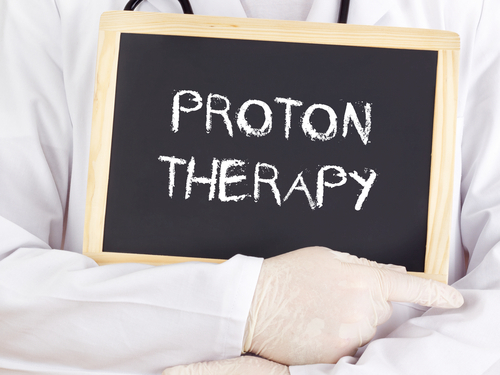Proton therapy may be effective for treating cancer in elderly
ANI Oct 26, 2017
Researchers have recently found that proton beam therapy is a type of particle therapy that uses a beam of protons to irradiate diseased tissue and in combination with chemotherapy may be effective for treating esophageal cancer in elderly patients.

Esophageal cancer is a cancer of the tube that runs from the throat to the stomach.According to study, proton beam therapy can help improve outcomes in patients aged 65 years and older, to undergo aggressive treatment for their esophagus cancer.Standard X-ray radiation therapy techniques include 3-D conformal radiation and intensity-modulated radiation therapy.Researcher Scott Lester at Mayo Clinic said that elderly patients experience more post-treatment heart and lung problems and are at higher risk for death after surgery than younger patients after receiving a combination of preoperative chemotherapy and radiation therapy.They found that patients treated with proton beam therapy experienced lower rates of postoperative heart and lung problems, such as acute respiratory distress syndrome and death.
The team followed 571 patients treated with traditional radiation therapy and chemotherapy followed by surgery at Mayo Clinic Cancer Center, MD Anderson Cancer Center and the University of Maryland Cancer Center from 2007 to 2013.In the study, 35 percent of patients were age 65 or older at diagnosis and classified as elderly for the study.About 43 percent of elderly patients received 3-D conformal radiation, 36 percent of patients received intensity-modulated radiation and 21 percent of patients received proton beam therapy.The results indicated that elderly patients treated with proton beam therapy had lower rates of heart and lung problems after surgery and a lower postoperative morality rate than patients treated with conventional techniques.
None of the patients treated with proton beam therapy experienced a postoperative death, which the researchers think is partially related to proton therapy's ability to reduce the dose to important structures near the esophagus, such as the heart and lungs.The results were presented at the Particle Therapy Cooperative Group -- North America Fourth Annual Conference in Chicago.
-
Exclusive Write-ups & Webinars by KOLs
-
Daily Quiz by specialty
-
Paid Market Research Surveys
-
Case discussions, News & Journals' summaries